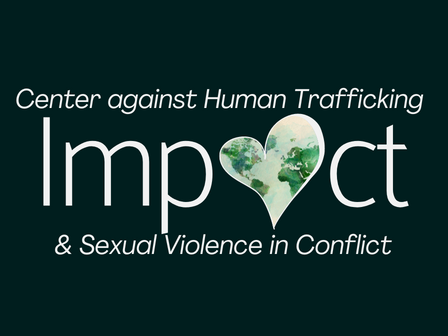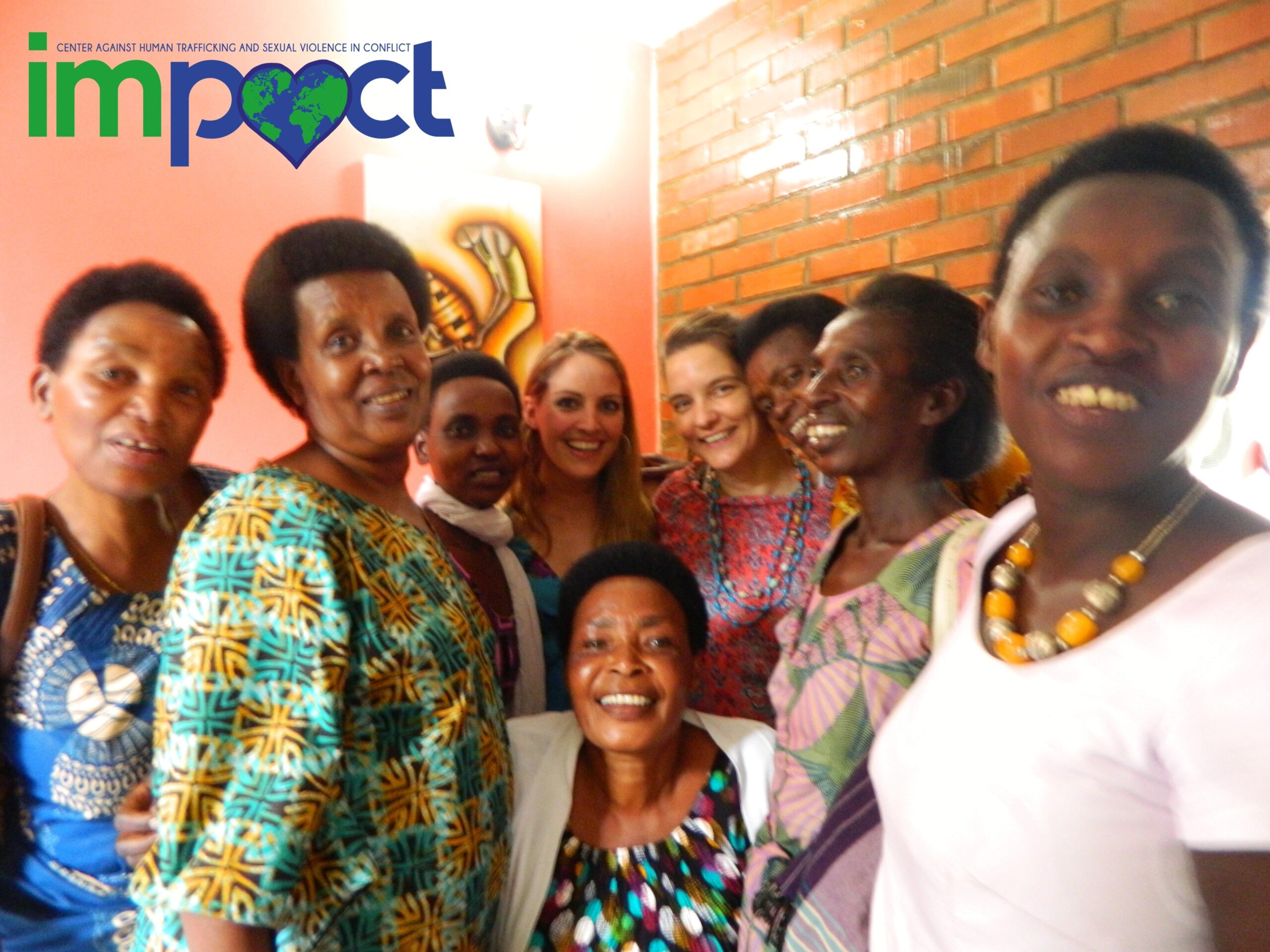Each year the International Day of Peace is celebrated on 21 September. The United Nations has declared this day as a day devoted to strengthening the ideals of peace within and among nations. This year’s theme for #Peaceday is “Together for Peace: Respect, Safety and Dignity for All” and focuses on engaging and mobilizing people throughout the world #JoinTogether to show support for refugees and migrants.
Although people may have legitimate concerns of the physical and economic insecurities that go hand in hand with large movements of refugees and migrants, it is also important to understand the shared benefits of migration to economies, people and nations as well as to remind ourselves of our common humanity. Refugees and migrants have oftentimes been through extreme hardship, which may have even included victimization through human trafficking and/or conflict-related sexual violence. Indeed, in the context of mass migration, women, men and children affected by conflict, displacement or violent extremism are particularly at risk of falling prey to traffickers owing to the collapse of protective political, legal, economic and social systems. With IMPACT: Center against Human Trafficking and Conflict-Related Sexual Violence our goal is to prevent and address human trafficking and conflict-related sexual violence so that we will live in a world of peace with respect, safety and dignity for all.
How are we going to do this? And what is human trafficking and conflict-related sexual violence in the first place? Human trafficking entails, in short, luring a person into a situation of exploitation with the objective of making profit at the expense of that person. The forms of exploitation can be different and do not only include sexual exploitation as most people may think. Labour exploitation, forcible removal of organs and, at the EU level, forced criminality and forced begging are also considered to fall within the broader term of human trafficking. Conflict-related sexual violence can take on many forms as well, but all have at least a sexual aspect, and may include rape, sexual slavery, forced prostitution, forced pregnancy, forced abortion and enforced sterilization. Both human trafficking and conflict-related sexual violence can take place in times of peace, conflict and post-conflict; the crimes can take place simultaneously or follow each other consecutively.
Both crimes affect millions of women, men, girls and boys, in each and every corner of the world. The impact of these crimes on the lives of the victims and society at large is so enormous and so human unworthy that these crimes should be given key priority when discussing international and national strategies of maintaining peace and security. You only need to listen to the stories of survivors to understand the impact of the crimes. For example, Clementine (Rwanda) whose story is depicted in the book “The Men Who Killed Me” said: “When I reflect on my lost childhood, I have a feeling of such extreme sadness. I lament whenever I remember all the dreams that I once cherished and that are now forever lost. I lament when I remember all those men who repeatedly raped me during the genocide, those same men who broke and destroyed me and every single aspect of my life. Those same men who killed me, slowly but very effectively.” Or listen to Karla (Mexico), who estimates that for 43,200 times she was raped after falling into the hands of human traffickers. Up to 30 men a day, seven days a week, for the best part of four years. Her message is that human trafficking and forced prostitution still happens and is a growing problem in our world. Karla: “These minors are being abducted, lured, and yanked away from their families. Don’t just listen to me. You need to learn about what happened to me and take the blindfold off your eyes.” And what about migrants who have been lured by human traffickers into selling their organs to survive as was recently in the news.
With IMPACT: Center against Human Trafficking and Conflict-Related Sexual Violence our goal is exactly, as mentioned, to have an impact in preventing and addressing human trafficking and conflict-related sexual violence for people like Clementine and Karla. Our aim is to positively influence policy makers, youth, professionals and others working and interested in the field of human trafficking and conflict-related sexual violence. We do this through research & advice, education & awareness, training & capacity building, and empowerment projects & advocacy.
We are looking at human trafficking and conflict-related sexual violence apart from each other, but also in tandem. We believe that there are many similarities between both crimes that can and need to be tackled together, although this is not yet seen and done so much at the moment. One can think of the sexual nature that can be found in both crimes, the taboos and stigmas surrounding both crimes, the difficulty in defining the crimes, the focus on law enforcement (prosecution) rather than on prevention, prosecutorial challenges (e.g. protection, secondary victimization, reliance on victims’ testimonies), lack of comprehensibly understanding victims’ rights and needs, misconceptions about perpetrators and victims, and the fluidity of victim- and perpetrator roles, the consequences of both crimes (e.g. trauma, children born as a result), the causes and purposes of the crimes, to name a few.
Only recently, the UN Secretary General in its report on conflict-related sexual violence of 15 April 2017 reported about the link between conflict-related violence and trafficking in persons for the first time. It was held that the term conflict-related sexual violence also encompasses trafficking in persons when committed in situations of conflict for the purpose of sexual violence/exploitation. Developments during the year 2016, including the rise in violent extremism and mass migration, drew attention to the attendant risk of trafficking in persons for the purpose of sexual violence/exploitation. In Resolution 2331 (2016) of 20 December 2016 of the UN Security Council was, moreover, the nexus between human trafficking, sexual violence, terrorism and transnational organized crime was for the first time addressed. With this resolution sexual violence as a tactic of terrorism was officially acknowledged.
As IMPACT, our vision is to have a world in which people live together respectfully and understand that we are dependent on each other to create a better world, a world free of violence. A world in which human trafficking and conflict-related sexual violence no longer take place by addressing and looking at these crimes separately and in tandem. We undertake this work based on a common passion for the topics of human trafficking and conflict-related sexual violence, a commitment to make a contribution to a better world where people have heart for each other, and a conviction that this approach reflects our norms, values and vision.
Act for Impact and make a Pact for Impact. We hope to be able to work with you – those already working in this area and those who are yet to do so – and that we can all join forces to #MakeAnIMPACT so that we will all be able to live in a Peaceful world one day.
The Impact Team,
Eefje, Anne-Marie & Min




